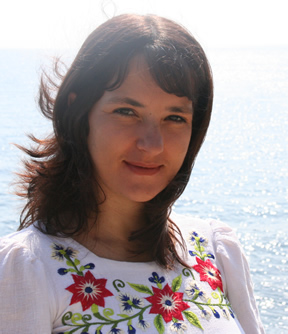 |
Prof. Alon Halevy, University of Washington and Director of AI at Meta (previously Facebook)
Abstract: Obtaining Answers from Social Media Data.
Content posted on social media is a rich set of data from which we would like to answer a broad set of questions. As one important example, keeping users safe on social networks requires that we identify content that contains misinformation or hateful speech and remove it. Similarly, users may be interested in getting additional value from their network such as finding friends who recently traveled to a particular destination or finding out which movies their friends are discussing. The typical machine learning approach in which we develop a model for every question we want to ask works well for questions we ask constantly (e.g., find hate speech), but not for ad-hoc questions that occur infrequently. In this talk I will advocate for an approach that combines the benefits of machine learning and database-style query answering. I will illustrate this approach through the idea of Neural Databases, a new kind of database system that leverages the strength of pre-trained language models to answer database queries over text and other modalities.
|
|
Biography:
Alon Halevy has been a director at Facebook AI since 2019, where he works on Human Value Alignment and on the combination of neural and symbolic techniques for data management. Prior to Facebook, Alon was the CEO of Megagon Labs (2015-2018) and led the Structured Data Research Group at Google Research (2005-2015), where the team developed WebTables and Google Fusion Tables. From 1998 to 2005 he was a professor at the University of Washington, where he founded the database group. Alon is a founder of two startups, Nimble Technology and Transformic Inc. (acquired by Google in 2005). He received his Ph.D in Computer Science from Stanford in 1993. Alon co-authored two books: The Infinite Emotions of Coffee and Principles of Data Integration. He is a Fellow of the ACM and a recipient of the PECASE award and Sloan Fellowship. Together with his co-authors, he received VLDB 10-year best paper awards for the 2008 paper on WebTables and for the 1996 paper on the Information Manifold data integration system. In 2021, he received the Edgar F. Codd SIGMOD Innovations Award.
|
|
 |
Prof. Tihana Galinac Grbac, Juraj Dobrila University of Pula, Croatia
Abstract: Software Engineering Meets Software Defined Networks.
Software has progressively entered every aspect of human life. The number of devices and platforms surrounding and supporting humans in every day activities is continuously growing. These devices and platforms are software based and interconnected over Internet in the new 5G network, which is virtual, software defined and reconfigurable. In such new circumstances, the classical software engineering theories must be revisited and extended, new areas of software engineering research emerge at high pace, the new rules and principles and open and clear standards of software and network design are needed more than ever, while at the same time new questions and problems continuously arise. These include, to mention just a few, the integration and management problems of heterogenous technologies required to achieve the full potential of software defined networks and autonomos managed traffic packets within future networked systems, the new levels of authorities for network and software providers, current software development trends that are driven by working solutions and on the fly improvements, harmonization of various goals while delivering reliable, safe, user friendly and sustainable solutions. In this talk we provide basic understanding of current trends in engineering software systems of future networks, revisit the software design principles which are of particular importance from software defined network perspective, and discuss challenges that curent software and system engineering technologies must address in order to enable sustainable future evolution. |
|
Biography:
Tihana Galinac Grbac is a professor of computer science at the Faculty of Engineering, Juraj Dobrila University of Pula, Croatia. She is the head and founder of the Software Engineering and Information Processing Laboratory (SEIP Lab) at the same university. Her current research interests are related to large scale and complex software systems which are evolutionary developed. She is particularly interested in software reliability, reliable software networking and reliable distributed systems. In a broader sense, she is also interested in a variety of large-scale complex systems including smart cities, telecommunication networks and others. In her investigations, she is actively performing experimentation within industry context using real data and statistical, soft computing, optimisation methods, complex network analysis, formal approaches in the search for better understanding of these systems. Previously, she spent 8 years with Ericsson Nikola Tesla, Zagreb, Croatia, leading global development projects and process improvement initiatives at the research and development center, and 10 years with the Faculty of Engineering, University of Rijeka, Croatia, where she established a new computer science study program at undergradute, graduate and PhD level and served as the head of the Department of Computer Engineering. She received the BS degree in 2000, MS degree in 2005, and PhD in 2009, from the Faculty of Electrical Engineering and Computing, University of Zagreb, Croatia. She has published more than 60 papers in scientific journals and conference proceedings and has led large scientific projects funded by Croatian Science Foundation (HRZZ). As a researher, she participated in many other international and national projects. Over the years, she was a visiting scholar at many international research institutions such as Imperial College London (UK), Lund University (Sweden), Vienna University of Technology (Austria), Eötvös Loránd University (Budapest, Hungary), Malardalen University (Vasteras, Sweden), Ericsson AB (Stockholm, Sweden), Ericsson Canada (Montreal, Canada), Ericsson Asia-Pacific Lab Pty (Melbourne, Australia). She is a member of IEEE, ACM and Women in Engineering, and has served as the vice-chair of the IEEE Technology Management Croatian Section and a member of the Croatian ACM Section Executive Committee. For her educational contributions, she received in 2017 the IEEE Croatian Section Award for Exceptional Contribution to Engineering Education – for exceptional contribution in knowledge transfer from industry and its application in engineering education in the field of computer science. At the ICT Gold Awards 2016 she was elected among Top 50 most influential women in Croatian ICT.
|
|
 |
Professor Omer F. Rana, School of Computer Science and Informatics,Cardiff University, UK
Abstract: Energy Efficient Edge & Serverless Systems.
|
|
Biography:
Omer F. Rana is a Professor of Performance Engineering at Cardiff University, with research interests in high performance distributed computing, data analysis/mining and multi-agent systems. Currently, he is the Dean of International for the Physical Sciences and Engineering College. He previously led the Complex Systems Research Group. He was formerly the deputy director of the Welsh eScience Centre and had the opportunity to interact with a number of computational scientists across Cardiff University and the UK. He serves on the steering committee of Cardiff University's multi-disciplinary "Data Innovation" and "Energy Systems" Research Institutes. Rana has contributed to specification and standardisation activities via the Open Grid Forum and worked as a software developer with London-based Marshall Bio-Technology Limited prior to joining Cardiff University, where he developed specialist software to support biotech instrumentation. He also contributed to public understanding of science, via the Wellcome Trust funded "Science Line", in collaboration with BBC and Channel 4. Rana holds a PhD in "Neural Computing and Parallel Architectures" from Imperial College (London Univ.), an MSc in Microelectronics (Univ. of Southampton) and a BEng in Information Systems Eng. from Imperial College (London Univ.). He serves on the editorial boards (as Associate Editor) of IEEE Transactions on Parallel and Distributed Systems, (formerly) IEEE Transactions on Cloud Computing, IEEE Cloud Computing magazine and ACM Transactions on Internet Technology. He is a founding-member and associate editor of ACM Transactions on Autonomous & Adaptive Systems..
|
|
 |
Prof. Annalisa Appice, University of Bari Aldo Moro, Italy.
Abstract: AI meets Cybersecurity
With the growing processing power of computing systems and the increasing availability of massive datasets, along with novel concepts and architectures for deep learning, AI algorithms have led to major breakthroughs in many different areas ioncluding cybersecurity. Nowadays AI has become one of the key enablers to studying and addressing cybersecurity-relevant problems at large in several application domains such as for intrusion detetction, malware detection and spam detection. However, it is important to consider that AI can be used also by attackers to continually improve their techniques and refine their offensive capabilities. Studying the effectiveness of AI is thus critical to ensure modern cybersecurity equipped to face the emerging threats allowed by malicious uses of AI. In this talk I will showcase several examples of recent progress in applying AI into cyber-threat detection problems and will provide a glimpse into exciting future directions that promise to have a profound impact on cybersecurity.
. |
|
Biography:
Annalisa Appice is an Associate Professor at the Department of Computer Science, University of Bari Aldo Moro, Italy. She received a Ph.D. in Computer Science in the University of Bari Aldo Moro. She was visiting researcher at the University of Bristol (U.K.) and at the Jozef Stefan Institute (Slovenia). Her current research interests include machine learning with cyber-data, event logs, spatio-temporal data and data streams with applications to cybersecurity, process mining and remote sensing. On these topics she has published more than 160 papers in international journals and conferences. She has been Program Co-Chair of ECML-PKDD 2015, ISMIS 2017 and DS 2020. She has been Journal Track Chair of ECML-PKDD 2021. She has participated in the organization (as co-chair) of several workshops on the topics machine learning, process mining and cybersecurity. She has been the responsible of research units in a regional project with topic on process mining and two research units of national projects with topic on remote sensing. She is serving/has served in the program committee of several international/national conferences. She is a member of the editorial board of Data Mining and Knowledge Discovery (DAMI) and Journal of Intelligent Information Systems (JIIS).
|
|
 |
Dr. Judit Kumuthini, South African National Bioinformatics Institute (SANBI), South Africa
Abstract: point-of-care Ultrasound (POCUS) Device Utilisation at the Edge in Lower and Middle Income Countries.
|
|
Biography:
Dr. Judit Kumuthini is Co-principal Investigator and Senior Researcher at the South African National Bioinformatics Institute (SANBI). Judit received her BSc (Hons) in Biomedical Science and MSc in Bioinformatics in the UK. She completed her PhD at University of Cranfield, UK, in Bioinformatics in genetic network (GN) extraction using a Bayesian belief framework to decipher causality. During her PhD, Judit established novel processes to learn genome-wide Genetic Network for E. coli, yeast and humans from microarray data. Judit later joined the drug discovery group at GSK (Glaxo Smith Kline, UK) as a drug-target bioinformatician. After completing a post-doctoral research fellowship at University of Cape Town, she became the Bioinformatics Manager at the CPGR (Centre for Proteomic and Genomics Research) and later Human Capital Development (HCD) Manager for over 11 years. While she served in the above capacities, she led her team to provide expertise in various fields in bioinformatics through research including providing support and R&D through collaboration to life scientists in the "omics" field to address a wide range of biological questions from genomics to system biology. She has developed and managed various training programs and initiatives including KTP (knowledge transfer programme) aimed at developing specific skill sets required for the next generation of in silico biologists and bioinformaticians in Africa. Judit is co-PI of H3ABioNet project (H3A bioinformatics network) under the umbrella of H3Africa funded by the National institutes of Health (NIH). She is an active and longstanding member in various global networks and initiatives including GA4GH, G2MC, GOBLET, ISCB and EMBNET amongst others. She is the co-chair for the H3Africa Rare Diseases Work Group and also the member of Scientific Advisory Committee of the newly formed North African Precision Medicine Consortium (PerMediNA).
|
|
 |
Prof Farid Meziane, University of Derby, UK
Abstract: Ultrasound reports standardisation using rhetorical structure theory and domain ontology.
Ultrasound reporting plays an important role in diagnosis as images produced during an ultrasound examination do not give the whole view of the medical conditions. However, in practice there are many issues that are inherent to ultrasound reporting and the most important was identified to be the lack of standardisation when producing these reports. There is a resistance to change from some radiologists preferring the free writing style, making any attempt to computerise the processing of these reports difficult. This research explores the possibility of using Rhetorical Structure Theory (RST) together with a domain ontology to transform free-form ultrasound reports into a structured form. It discusses a new approach in segmenting and identifying rhetorical relations that are more applicable to ultrasound reports from classical RST relations. The approach was evaluated on a sample ultrasound reports where the system’s parsing was compared to the manual parsing performed by experts. The results show that discourse parsing using RST in ultrasound reports can be performed effectively using the support of a domain ontology. The results also demonstrate that the transformation of free-form ultrasound reports into a structured form can be performed with the support of RST relations identified and the domain ontology.
|
|
Biography:
Farid Meziane has over 35 years’ experience in higher education. He obtained a PhD in Computer Science from the University of Salford, UK on his work on producing formal specification from Natural Language requirements. The work was considered at that time as pioneering in the area and paved the way for a large interest in automating the production of software specifications from informal requirements. Upon completion of his PhD, he took a lecturer’s position at the Institute of Software Technology (IST) at the University Malaysia Sarawak (UNIMAS) where he spent three years. He returned in 1998 to the University of Salford where he spent the last twenty-two years. He was promoted to a professor and held a chair in Data and Knowledge Engineering and leading research in computer Science as the head of the Informatics Research Centre. Professor Farid led the REF2020 UoA11 submission at Salford until the end of July 2020. For eight years, Professor Meziane was the Associate Dean for International Development for the School of Computing, Science and Engineering and was behind the development of the Internationalisation strategy for the school and setting partnerships and collaborations with international partners. Professor Meziane is currently with the University of Derby holding a chair in Data Science and the head of the Data Science Research Centre. He has authored over 100 scientific papers and participated in many national and international research projects. He is the co-chair of the international conference on application of Natural Language to information systems; co-chair of the international conference on Information Science and Systems. He is serving the programme committee of over ten international conferences and in the editorial board of three international journals. He was awarded the Highly Commended Award from the Literati Club, 2001 for his paper on Intelligent Systems in Manufacturing: Current Development and Future Prospects. His research expertise includes Natural Language processing, semantic computing, data mining and big data and knowledge Engineering.
|
|
 |
Prof Elisabeth Lex, Graz University of Technology, AUSTRIA
Abstract:Psychology-informed recommender systems.
Personalized recommender systems are essential tools to facilitate human decision making. Many contemporary recommender systems use advanced machine learning techniques to model and predict user preferences from behavioral data. While such systems can provide helpful recommendations, their algorithms' design does not incorporate the underlying psychological mechanisms that shape user preferences and behavior. In this keynote, we will discuss recent work in psychology-informed recommender systems, i.e., recommender systems that consider extrinsic and intrinsic human factors in their algorithmic design. We show how such systems can improve the recommendation process in a user-centric fashion.
|
|
Biography:
Elisabeth Lex is an Associate Professor at the Institute of Interactive Systems and Data Science and dean of study for Computational Social Systems at Graz University of Technology. Her main research interests include recommender systems, information retrieval, user modeling, and machine learning. She has co-authored more than 120 peer-reviewed scientific publications in venues and journals such Foundations and Trends in Information Retrieval, User Modeling and User-Adapted Interaction (UMUAI), ACM RecSys, ACM UMAP, ACM WEB (former WWW). At TU Graz, she currently heads the Recommender Systems and Social Computing Lab.
|
|
 |
Dr. Kirsty Park, School of Communications, Dublin City University, Ireland
Abstract: Automating disinformation detection: the challenges from a social science perspective.
The mitigation of online disinformation is an urgent and challenging problem. However, it is also beset with conceptual, practical, and regulatory difficulties.
This talk will review these challenges from a social science perspective and contextualise them in terms of the EU’s wide-ranging response to the problem. It will also
present the concept behind an EU-funded project which seeks to marry technical and social science
perspectives as well as presenting original research which addresses the challenge of generating large-scale training data for the development of automated disinformation detection.
|
|
Biography:
Kirsty Park is a post-doctoral researcher at DCU Institute for Media, Democracy and Society (FuJo) where she leads research on disinformation
for H2020 Provenance and the Ireland Hub for the European Digital Media Observatory.
She has also worked on monitoring signatory compliance with the EU Code of Disinformation for the Broadcasting Authority of Ireland and analyses the Irish data for the Oxford Reuters Digital News Report.
|
|
|
|